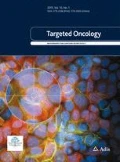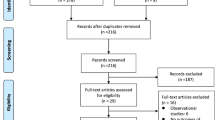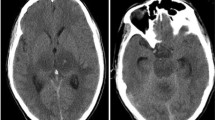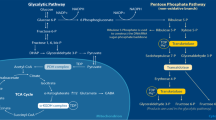Abstract
Posterior reversible encephalopathy syndrome (PRES) is a clinico-radiological entity that may occur in patients receiving anti-vascular endothelial growth factor (VEGF) agents such as bevacizumab and tyrosine kinase inhibitors. Little is known about the characteristics of patients at risk for PRES under anti-VEGF agents. We carried out a comprehensive review of reports documenting the occurrence of PRES in patients receiving anti-VEGF agents. Twenty-six patients are described with a majority of females (73.1%). Almost a third of patients had a past history of hypertension. The most common symptoms included headache, visual disturbance and seizure. A vast majority of patients had hypertension at the diagnosis of PRES, and proteinuria was detectable each time it was investigated. Neurological outcome was favorable in all cases with a symptomatic treatment including blood pressure control. The risk of PRES is increased when blood pressure is poorly controlled and when proteinuria is detectable. The clinical course appears favorable with a symptomatic treatment. PRES is a potentially severe but manageable toxicity of anti-VEGF agents.
Similar content being viewed by others
References
Feske SK (2011) Posterior reversible encephalopathy syndrome: a review. Semin Neurol 31(2):202–215
Hinchey J, Chaves C, Appignani B, Breen J, Pao L, Wang A et al (1996) A reversible posterior leukoencephalopathy syndrome. N Engl J Med 334(8):494–500
Hinchey JA (2008) Reversible posterior leukoencephalopathy syndrome: what have we learned in the last 10 years? Arch Neurol 65(2):175–176
Glusker P, Recht L, Lane B (2006) Reversible posterior leukoencephalopathy syndrome and bevacizumab. N Engl J Med 354(9):980–982, discussion 980–982
Govindarajan R, Adusumilli J, Baxter DL, El-Khoueiry A, Harik SI (2006) Reversible posterior leukoencephalopathy syndrome induced by RAF kinase inhibitor BAY 43–9006. J Clin Oncol 24(28):e48
Kapiteijn E, Brand A, Kroep J, Gelderblom H (2007) Sunitinib induced hypertension, thrombotic microangiopathy and reversible posterior leukencephalopathy syndrome. Ann Oncol 18(10):1745–1747
Leighl NB, Raez LE, Besse B, Rosen PJ, Barlesi F, Massarelli E et al (2010) A multicenter, phase 2 study of vascular endothelial growth factor trap (Aflibercept) in platinum- and erlotinib-resistant adenocarcinoma of the lung. J Thorac Oncol 5(7):1054–1059
Mir O, Ropert S, Alexandre J, Goldwasser F (2009) Hypertension as a surrogate marker for the activity of anti-VEGF agents. Ann Oncol 20(5):967–970
Mir O, Coriat R, Ropert S, Cabanes L, Blanchet B, Camps S et al (2010) Treatment of bevacizumab-induced hypertension by amlodipine. Invest New Drugs. doi:10.1007/s10637-010-9549-5
Scappaticci FA, Skillings JR, Holden SN, Gerber HP, Miller K, Kabbinavar F et al (2007) Arterial thromboembolic events in patients with metastatic carcinoma treated with chemotherapy and bevacizumab. J Natl Cancer Inst 99(16):1232–1239
Dogan E, Aksoy S, Arslan C, Dede DS, Altundag K (2009) Probable sorafenib-induced reversible encephalopathy in a patient with hepatocellular carcinoma. Med Oncol 27(4):1436–1437
Rini BI, Garcia JA, Cooney MM, Elson P, Tyler A, Beatty K et al (2009) A phase I study of sunitinib plus bevacizumab in advanced solid tumors. Clin Cancer Res 15(19):6277–6283
Artunay O, Yuzbasioglu E, Rasier R, Sengul A, Bahcecioglu H (2010) Posterior reversible encephalopathy syndrome after intravitreal bevacizumab injection in patient with choroidal neovascular membrane secondary to age-related maculopathy. J Ocul Pharmacol Ther 26(3):301–303
Burki F, Badie K, Bartoli P, Bernard P, Montastruc JL, Bagheri H (2008) Reversible posterior leukoencephalopathy syndrome associated with bevacizumab/doxorubicin regimen. Br J Clin Pharmacol 65(5):793–794
Chang Y, Mbeo G, Littman SJ (2011) Reversible posterior leukoencephalopathy syndrome associated with concurrent bevacizumab, gemcitabine, and oxaliplatin for cholangiocarcinoma. J Gastrointest Cancer. doi:10.1007/s12029-011-9279-8
Chen A, Agarwal N (2009) Reversible posterior leucoencephalopathy syndrome associated with sunitinib. Intern Med J 39(5):341–342
Cumurciuc R, Martinez-Almoyna L, Henry C, Husson H, de Broucker T (2008) Posterior reversible encephalopathy syndrome during sunitinib therapy. Rev Neurol (Paris) 164(6–7):605–607
dos Reis Simões da Silva FM, Burgos Pêgo PM, Henriques Vendrell MC, de Azevedo Batalha Ferreira dos Santos Farias MJ, Ribeiro Timóteo AC, Martins da Costa MC, Monteiro Barbosa Moreira Cravo IM, Ribeiro Gomes FM (2011) Posterior Reversible Encephalopathy Syndrome and Anti-Angiogenic Agents: A Case Report. Neuro-ophtalmology 35(1):32–37
El Maalouf G, Mitry E, Lacout A, Lievre A, Rougier P (2008) Isolated brainstem involvement in posterior reversible leukoencephalopathy induced by bevacizumab. J Neurol 255(2):295–296
Feldman DR, Baum MS, Ginsberg MS, Hassoun H, Flombaum CD, Velasco S et al (2009) Phase I trial of bevacizumab plus escalated doses of sunitinib in patients with metastatic renal cell carcinoma. J Clin Oncol 27(9):1432–1439
Koopman M, Muller EW, Punt CJ (2008) Reversible posterior leukoencephalopathy syndrome caused by bevacizumab: report of a case. Dis Colon Rectum 51(9):1425–1426
Lau PC, Paunipagar B (2011) Posterior reversible encephalopathy syndrome with bevacizumab. Hong Kong Med J 17(1):80–81
Martin G, Bellido L, Cruz JJ (2007) Reversible posterior leukoencephalopathy syndrome induced by sunitinib. J Clin Oncol 25(23):3559
Ozcan C, Wong SJ, Hari P (2006) Reversible posterior leukoencephalopathy syndrome and bevacizumab. N Engl J Med 354(9):980–982, discussion 980–982
Padhy BM, Shanmugam SP, Gupta YK, Goyal A (2011) Reversible posterior leucoencephalopathy syndrome in an elderly male on sunitinib therapy. Br J Clin Pharmacol 71(5):777–779
Peter S, Hausmann N, Schuster A, Boehm HF (2008) Reversible posterior leukoencephalopathy syndrome and intravenous bevacizumab. Clin Experiment Ophthalmol 36(1):94–96
van der Veldt AA, van den Eertwegh AJ, Hoekman K, Barkhof F, Boven E (2007) Reversible cognitive disorders after sunitinib for advanced renal cell cancer in patients with preexisting arteriosclerotic leukoencephalopathy. Ann Oncol 18(10):1747–1750
Medioni J, Cojocarasu O, Banu E, Cassar-Queudeville A, Halimi P, Oudard S (2007) Reversible encephalopathy syndrome secondary to sunitinib for metastatic renal cell carcinoma patient. Targ Oncol 2(3):193–195
Lou E, Turner S, Sumrall A, Reardon DA, Desjardins A, Peters KB et al (2011) Bevacizumab-induced reversible posterior leukoencephalopathy syndrome and successful retreatment in a patient with glioblastoma. J Clin Oncol. doi:10.1200/JCO.2011.36.1865
Seet RC, Rabinstein AA (2011) Clinical features and outcomes of posterior reversible encephalopathy syndrome following bevacizumab treatment. QJM. doi:10.1093/qjmed/hcr139
Pinedo DM, Shah-Khan F, Shah PC (2007) Reversible posterior leukoencephalopathy syndrome associated with oxaliplatin. J Clin Oncol 25(33):5320–5321
Paker AM, Chi L, Ruiz MC, Loghin ME (2011) Posterior reversible encephalopathy syndrome in patients with cancer. J Clin Oncol 29(suppl):2561
Plouet J, Schilling J, Gospodarowicz D (1989) Isolation and characterization of a newly identified endothelial cell mitogen produced by AtT-20 cells. EMBO J 8(12):3801–3806
Izzedine H, Ederhy S, Goldwasser F, Soria JC, Milano G, Cohen A et al (2009) Management of hypertension in angiogenesis inhibitor-treated patients. Ann Oncol 20(5):807–815
Tsatsaris V, Goffin F, Munaut C, Brichant JF, Pignon MR, Noel A et al (2003) Overexpression of the soluble vascular endothelial growth factor receptor in preeclamptic patients: pathophysiological consequences. J Clin Endocrinol Metab 88(11):5555–5563
Patel TV, Morgan JA, Demetri GD, George S, Maki RG, Quigley M et al (2008) A preeclampsia-like syndrome characterized by reversible hypertension and proteinuria induced by the multitargeted kinase inhibitors sunitinib and sorafenib. J Natl Cancer Inst 100(4):282–284
Wagner SJ, Acquah LA, Lindell EP, Craici IM, Wingo MT, Rose CH et al (2011) Posterior reversible encephalopathy syndrome and eclampsia: pressing the case for more aggressive blood pressure control. Mayo Clin Proc 86(9):851–856
Conflicts of interest statement
Dr. Mir has acted as paid consultant for Roche. Prof. Goldwasser has acted as paid consultant for Pfizer and Bayer. The other authors have no conflict of interest to declare.
Author information
Authors and Affiliations
Corresponding author
Rights and permissions
About this article
Cite this article
Tlemsani, C., Mir, O., Boudou-Rouquette, P. et al. Posterior reversible encephalopathy syndrome induced by anti-VEGF agents. Targ Oncol 6, 253–258 (2011). https://doi.org/10.1007/s11523-011-0201-x
Received:
Accepted:
Published:
Issue Date:
DOI: https://doi.org/10.1007/s11523-011-0201-x




